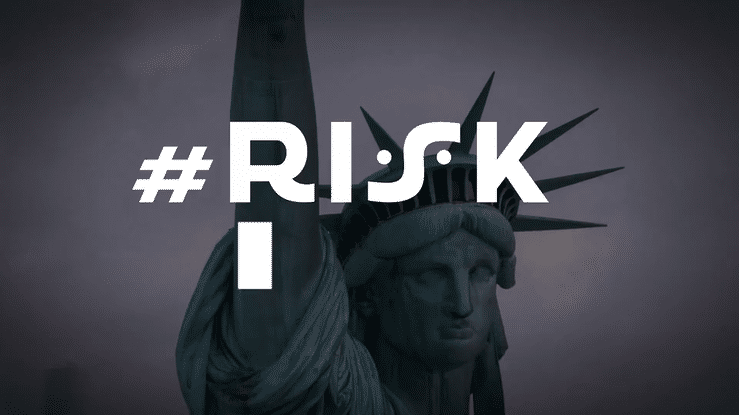All articles by PrivSec Report – Page 16
-
 Feature
FeatureWhat GDPR means for the insurance industry
The introduction of the GDPR will make a significant impact on the insurance industry, both within and outside Europe.
-
 Feature
FeatureHow will GDPR affect employee data?
In this second of our series of GDPR blogs, we explore how creative agencies need to be aware of GDPR in terms of the information that they hold on employees.
-
 Feature
FeatureBoard Director of DMA discusses consent versus legitimate interests
Speaking at the GDPR Summit London, Julia Porter, from the DMA, grappled with the thorny topic of consent versus legitimate interests. It’s a crucial issue concerning marketers and GDPR.
-
 Feature
FeatureEmployee rights under GDPR
Personal data means all data concerning individuals and that means not only customers, but, for example, suppliers and staff. At the recent GDPR Summit London, GDPR and the rights of employees came up time and time again, but a panel discussion uncovered some important lessons.
-
 Feature
FeatureCambridge Analytica and Facebook: surviving the mindset revolution
I bet you never thought taking one of those innocuous Facebook quizzes would lead to the election of Donald Trump?
-
 Feature
FeatureGDPR deep dive: how to implement the ‘right to be forgotten’
For banks and other financial institutions one of the key challenges of GDPR will be how to implement the right to erasure (a.k.a. the right to be forgotten).
-
 Feature
FeatureWhat do healthcare organisations need to consider when preparing for GDPR?
As we know the new rules brought in by GDPR will reinforce current legislation with the addition of some new requirements. Any organisation, including those in the healthcare sector, controlling or processing personally identifiable data will need to comply with GDPR.
-
 Feature
FeatureGDPR: Changing the ways businesses interact with their customers
From 25 May 2018 the Data Protection Act 1998 (DPA) will be replaced by The General Data Protection Regulation (GDPR), and it will bring important changes to the ways data is stored and processed by businesses.
-
 Article
ArticleGDPR and PECR for marketers
Data protection and marketing are so closely interconnected that no marketing plan involving data can move forward without getting data protection right. GDPR – General Data Protection Regulation – and PECR – Privacy and Electronic Communication Regulations – are regulations concerning data protection that marketers must familiarise themselves with.
-
 Feature
FeatureThe 7 elements of GDPR software security compliance
By now, you’re probably aware that the General Data Protection Regulation (GDPR) is coming. Taking effect on May 25, 2018, GDPR aims to unify the European Union (EU) on common data protection practices. Bringing more control and higher standards, this regulation will affect how firms gather, store, and use data pertaining to EU residents.
-
 Feature
FeatureWhy all teachers and staff must be ready for GDPR
Schools have their own special set of challenges when preparing for GDPR and imminent EU rules will radically change the way all organisations have to look after personal data.
-
 Feature
FeatureThe impact of GDPR on the technology sector
According to report by PORT.im, the majority of UK companies are still unaware of their responsibilities when it comes to the protection of personal identifiable information under GDPR and the technology sector is no different.
-
 Q&A
Q&AHere are the answers to the most frequently asked questions about GDPR
The most pressing questions asked around the General Data Protection Regulation (GDPR)
-
 Feature
FeatureThe data protection directive versus the GDPR
When the General Data Protection Regulation (GDPR) takes effect, it will replace the Data Protection Directive (DPD) – becoming enforceable by May 25, 2018. The following is a detailed explanation of the differences between the DPD and the GDPR.
-
 Feature
FeatureWhat does GDPR mean for the recruitment industry?
Though data breaches may grab the most headlines, becoming GDPR compliant goes much broader than just taking them more seriously.
-
 Feature
FeaturePersonal data breaches: the responsibility of the data processor
One of the aims of GDPR is “accountability” and this is emphasised when it comes to personal data breaches – that is breaches of security which lead to damage. The potential damage is clearly illustrated in Recital 85 of the GDPR to include “discrimination, identity theft or fraud, financial loss, unauthorised reversal of pseudonymisation, damage to reputation, loss of confidentiality”.
-
 Feature
FeatureGDPR and the information lifecycle
I’m keen to change the perception that General Data Protection Regulation (GDPR) will act as a drag on organisations. I also want to avoid others falling into the trap of thinking the only inducement for an organisation to comply is to avoid a fine.
-
 Feature
FeatureHow do business cards sit with GDPR?
Think back to the last business event you attended. You likely met new contacts and at some point may have said, “Here, drop me a line,” reaching into your pocket to produce your details embossed on a flashy, tactile card.
-
 Feature
FeatureDon’t let your cache be your GDPR weak point
Every system has its weak point. Remember when Luke Skywalker bulls-eyed a small thermal exhaust port with proton torpedos, causing a chain reaction that blew up the Death Star? Okay, it’s an extreme (and fictitious) example. However it reminds us that we must be vigilant about protecting small parts of our IT infrastructure, including the cache.
-
 Feature
FeatureGDPR and Google Analytics
Many businesses use Google Analytics as their only web analytics tool and are very happy with it.













